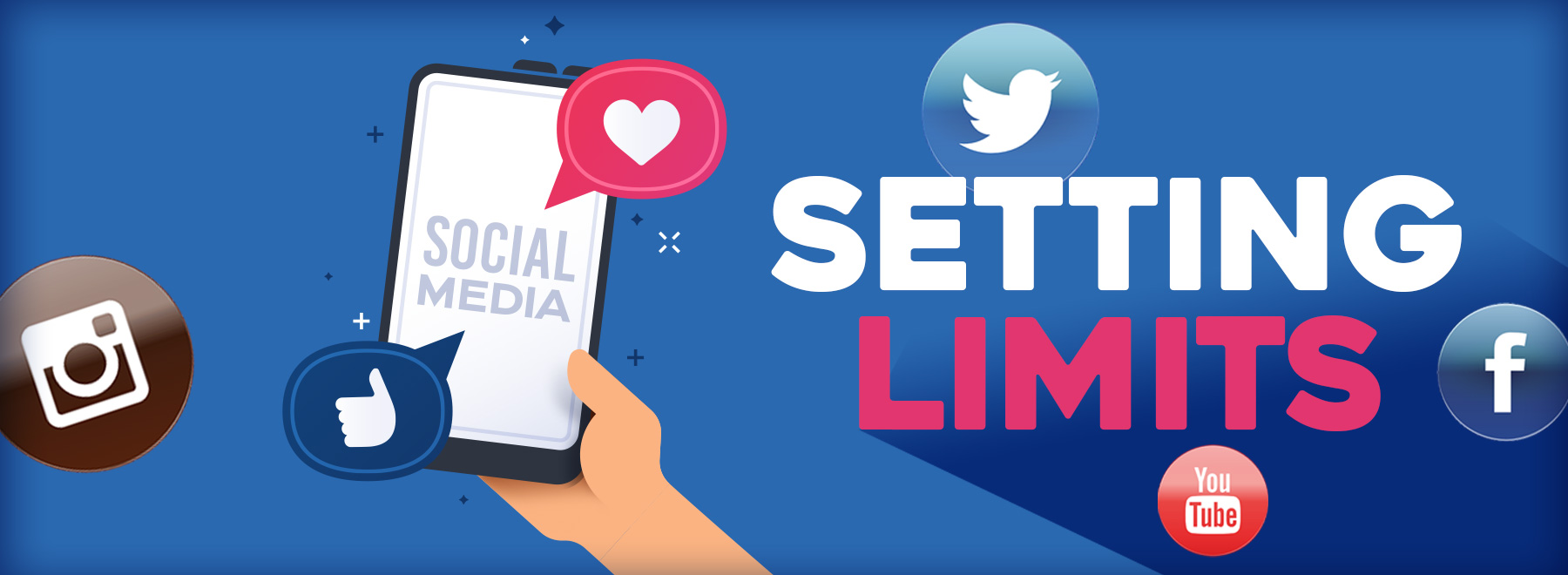Family social media rules a must, Children’s of Mississippi experts say
Parents should give their children guidance in social media use as well as good examples to follow, Children’s of Mississippi behavioral health experts say following the U.S. surgeon general’s advisory earlier this summer.
“At this time, we do not yet have enough evidence to determine if social media is sufficiently safe for children and adolescents,” Surgeon General Dr. Vivek Murthy wrote in the report. Yet, according to the advisory, up to 95 percent of youth ages 13 to 17 use at least one social media platform, with more than a third of them saying they use social media “almost constantly.”

Teenagers aren’t the only ones using social media, said Dr. Gabrielle Banks, a psychologist with the Center for Advancement of Youth, a University of Mississippi Medical Center children’s behavioral and developmental health clinic. “Tweens and elementary school children are using social media, too, because anything teens do, the younger children want to do.”
During the COVID-19 pandemic, social media had been a socialization tool for teens who were taking online classes at home instead of going to school or looking to connect with peers from a distance, Banks noted. Too much time on social media or falling into a “comparison” trap can be negative, she said.
“Children or any of us can easily fall into the trap of comparing our reality to someone else’s highlight reel,” Banks said. Social comparison has been directly linked to negative beliefs about ourselves and our lives. This can lead to detrimental effects.
Social media platforms such as Instagram and Facebook can have other hazards, said Suzanne Campiche, a licensed clinical social worker at the Center.
“Detrimental effects, which are detailed in the surgeon general’s advisory, include increased symptoms or feelings of anxiety and depression, behavior dysregulation, lower self-esteem, and higher likelihood of body dissatisfaction and/or eating disorders,” Campiche said. “Physical effects such as worse sleep and eating disorders can be present as well.”
Studies have shown that adolescents, and particularly teen girls, can be at risk for cyberbullying-related depression, body image, eating disorders and poor sleep quality tied to social media use. In the surgeon general’s advisory, most parents of adolescents say that they are somewhat, very or extremely worried that their teens’ social media use could lead to anxiety or depression.
According to the advisory, 64 percent of adolescents are often or sometimes exposed to hate-based content. Among adolescent girls of color, a third or more reported exposure to racist content or language on social media.
With these dangers in mind, the American Academy of Pediatrics has created the AAP Center of Excellence on Social Media and Youth Mental Health.
“Today’s children and teens do not know a world without digital technology, but the digital world wasn’t built with children’s healthy mental development in mind,” said Dr. Sandy Chung, national president of the professional pediatric organization. “We need an approach to help children both on and offline that meets each child where they are while also working to make the digital spaces they inhabit safer and healthier.”
Campiche agrees, noting that the brains of adolescents and tween-agers are still forming.
"They may not have the critical thinking skills to recognize when something is doing them harm and be able to set limits themselves,” she said. “They need parents to help them do this. They may be exposed to harmful, inappropriate content, or victims of cyberbullying or online predators. Also, as detailed in the surgeon general’s advisory, social media use at night gets in the way of healthy sleep (by delaying bedtimes) and impacts brain development.”
Limiting social media use and screen time is essential. The American Academy of Child and Adolescent Psychiatry recommends developing healthy limits for technology use including turning off all screens during family meals and outings to facilitate more face-to-face engagement with others and at least 30 to 60 minutes before bedtime to allow our brains to prepare for more restful sleep.
While the surgeon general’s advisory calls on policymakers and technology companies to also take action to protect youths, parents can have the greatest impact.
"My biggest recommendations,” said Banks, “are finding a balance for spending time online and monitoring by parents. Parents should have access to passwords and should follow their children on any platforms they use.”
Banks compares parental social media monitoring to chaperoning. “You wouldn’t let 13-year-olds have all their friends over unsupervised. Using social media is the same. There has to be a balance between privacy and emerging autonomy with rules of use. Children should know that these rules are in place to keep them safe, healthy and feeling good about themselves.”
Parents can follow these tips to encourage healthy social media habits:
Model the behavior you want to see: Teens are more likely to do what you do, and not what you say, so if they see their parents on the phone 24/7 and engaging with social media excessively, it is hypocritical to then have limits on them for the same.
Discuss social media use with other parents: If your child’s friends are all using social media, you will feel pressure to let your child join in, too. “The more parents band together, the more likely they can have a positive influence on healthy screen time,” Campiche said.
Monitor your child’s social media use: The American Psychological Association recommends that when kids first begin to use social media, that parents closely follow their behavior on the apps. Some tips for this are allowing one application at a time, and for parents to take five minutes a day to review your child’s posts, interactions, friend requests and private messages to model responsible use and behavior and to make sure they are being safe and not sharing personal information. Also, set their accounts to private.
Set firm boundaries for time and place of use: Experts recommend having a cut-off time at night – at least one to two hours before bedtime – so that screen time is less likely to disrupt sleep. Even having a policy where no phones are allowed in bedrooms at all, and setting a place where the whole family puts up phones for the night, could show them good habits. Also, make family time or mealtime screen-free.
Talk with your child: Provide education about the developing brain, about how they are hard-wired for paying special attention to social evaluation and that consequences of a perceived lack of “likes” or ostracization online can affect them more deeply than adults. Ask your teen regularly if what they are viewing makes them feel worse about themselves and talk with them about how to reduce their consumption of harmful content. Blanket statements that dismiss social media such as “you need to stay off of social media” or “I don’t understand why it’s so important” are not likely to help you achieve your goal because youth will be more like to presume that you do not understand their experience. They are much less likely to listen when they believe you do not understand them.
Report bullying: Cyberbullying should be reported to your child’s school, online platform or police, the surgeon general’s report advises. Visit CyberTipline or Take It Down, or contact law enforcement to report instances of online exploitation.
The above article appears in CONSULT, UMMC’s monthly e-newsletter sharing news about cutting-edge clinical and health science education advances and innovative biomedical research at the Medical Center and giving you tips and suggestions on how you and the people you love can live a healthier life. Click here and enter your email address to receive CONSULT free of charge. You may cancel at any time.



